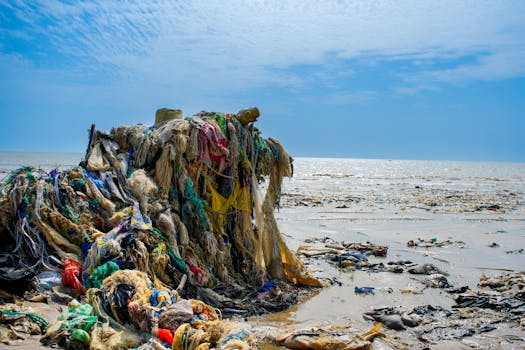
Climate change is a pressing issue that has far-reaching effects on global ecosystems. The term encapsulates a range of phenomena, from rising temperatures to changing precipitation patterns, all of which contribute to significant alterations in our planet’s natural systems. This article delves into the impact of climate change on global ecosystems, examining the consequences for biodiversity, habitats, and human communities.
Understanding Climate Change

At its core, climate change refers to long-term shifts in temperatures and weather patterns. While climate change is a natural phenomenon, human activities such as burning fossil fuels and deforestation have accelerated this process, leading to more severe impacts. The increase in greenhouse gases in the atmosphere has resulted in a rise in global temperatures, which in turn affects ecosystems worldwide.
Effects on Biodiversity

One of the most alarming consequences of climate change is the threat it poses to biodiversity. Many species are struggling to adapt to the rapid changes in their environments. For example, polar bears are losing their sea ice habitat due to melting glaciers, while coral reefs are suffering from bleaching caused by warmer ocean temperatures. These changes not only threaten individual species but also disrupt entire ecosystems, leading to a decline in biodiversity.
Habitat Loss and Fragmentation
As climate change alters weather patterns, many species are forced to migrate to new areas in search of suitable habitats. This migration can lead to habitat loss and fragmentation, which further exacerbates the challenges faced by wildlife. For instance, forests that once provided shelter for countless species may become inhospitable, forcing animals to compete for dwindling resources.
Impact on Ecosystem Services

Ecosystems provide essential services that are vital for human survival, including clean air and water, pollination of crops, and climate regulation. Climate change threatens these services by altering the balance of ecosystems. For instance, changes in temperature and precipitation can affect agricultural productivity, leading to food shortages and increased prices. Additionally, wetland ecosystems that filter water are at risk, which can compromise the quality of water available to communities.
Ocean Ecosystems
Oceans are particularly vulnerable to climate change. Rising sea temperatures and ocean acidification threaten marine life, including fish populations that are crucial for food security. Coral reefs, which support a diverse range of marine species, are experiencing unprecedented levels of bleaching, leading to the loss of these vital ecosystems. The decline of ocean ecosystems can have cascading effects on global food systems and economies.
Human Communities and Climate Change

The impact of climate change on ecosystems extends to human communities. As natural disasters become more frequent and severe due to climate change, vulnerable populations are disproportionately affected. Communities that rely on agriculture are facing challenges due to changing weather patterns, which can lead to crop failures and economic instability.
Climate Justice
Climate change is not just an environmental issue; it is also a social justice issue. Marginalized communities often bear the brunt of environmental changes, facing greater risks and fewer resources to adapt. Addressing climate change requires a focus on equity and justice, ensuring that all communities have the tools and support needed to navigate these changes.
Conclusion

The impact of climate change on global ecosystems is profound and multifaceted. From biodiversity loss to the disruption of essential ecosystem services, the consequences are far-reaching. It is imperative that we take urgent action to mitigate climate change and protect our planet’s ecosystems for future generations. By understanding the interconnectedness of climate change and global ecosystems, we can work towards solutions that benefit both the environment and humanity.





